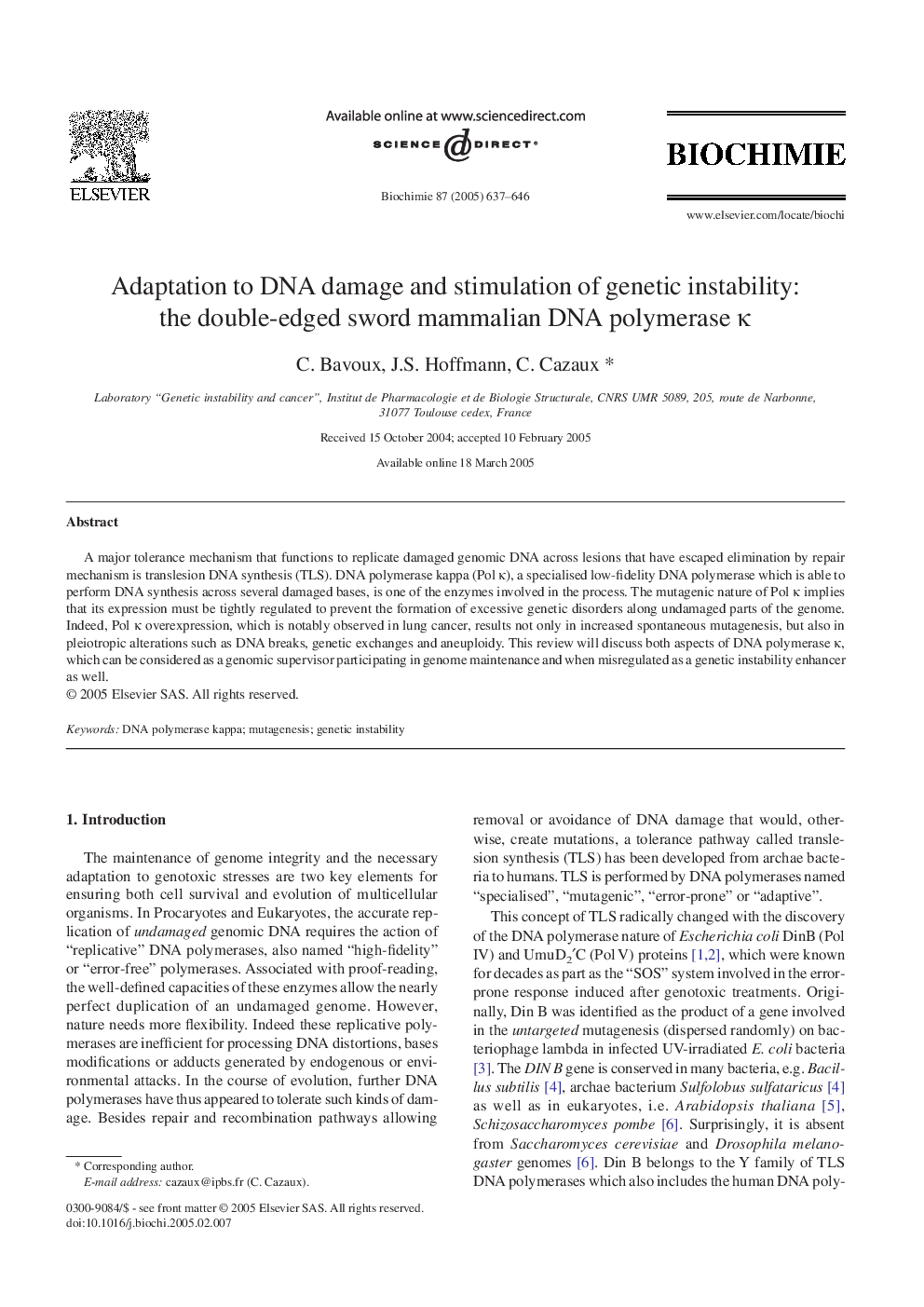| Article ID | Journal | Published Year | Pages | File Type |
|---|---|---|---|---|
| 10804385 | Biochimie | 2005 | 10 Pages |
Abstract
A major tolerance mechanism that functions to replicate damaged genomic DNA across lesions that have escaped elimination by repair mechanism is translesion DNA synthesis (TLS). DNA polymerase kappa (Pol κ), a specialised low-fidelity DNA polymerase which is able to perform DNA synthesis across several damaged bases, is one of the enzymes involved in the process. The mutagenic nature of Pol κ implies that its expression must be tightly regulated to prevent the formation of excessive genetic disorders along undamaged parts of the genome. Indeed, Pol κ overexpression, which is notably observed in lung cancer, results not only in increased spontaneous mutagenesis, but also in pleiotropic alterations such as DNA breaks, genetic exchanges and aneuploidy. This review will discuss both aspects of DNA polymerase κ, which can be considered as a genomic supervisor participating in genome maintenance and when misregulated as a genetic instability enhancer as well.
Related Topics
Life Sciences
Biochemistry, Genetics and Molecular Biology
Biochemistry
Authors
C. Bavoux, J.S. Hoffmann, C. Cazaux,
